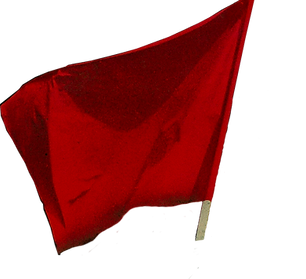Neutrality and solidarity
- Katharina J.
- 27. Apr. 2022
- 3 Min. Lesezeit
Aktualisiert: 17. Nov. 2023
With the State Treaty of 1955, Austria committed itself to perpetual neutrality. But now it is being shaken again with all vehemence. Not only the representatives of the parliamentary parties, but also the monopoly media are joining in the warmongering.
The newspaper DerStandard headlined a commentary: "More weapons for Ukraine. Economic sanctions won't help against Russian war crimes." Likewise Florian Klenk of Falter [note: also an Austrian newspaper], who recently tweeted, "All those who think the 'West' should not supply weapons to Ukraine should be ashamed now." Today, neutrality is an annoying "block on the leg" for the rulers and their hacks, which is at most shown at national holiday. After the Second World War, neutrality was just as controversial; the Western Allies opposed Austria's neutrality for a long time because they were pursuing the plan of having Austria militarily on their side as well. For the majority of the Austrian population, however, it was clear that they did not want to be drawn into another armed conflict, and neutrality enjoyed great popularity. But Austria's accession to the EU has undermined essential pillars of neutrality; Austria is part of the "NATO Partnership for Peace", the EU Battlegroups and now also part of the new EU intervention force led by Germany.
Now, military and warlike conflicts cannot be separated from the respective politics, rather, war is always a continuation of politics by other means. In the concrete case of the Ukrainian war, which has an eight-year history, the "West" acts according to economic and political interests in order to maintain and expand its influence in Ukraine. Austria's capitalist elites also have a strong interest in Ukraine being dominated by the "West." To mention only a few examples: it is about big profits in the banking sector (Raiffeisen), or also of the industrial concerns (Voest), which are to be secured in case of doubt also militarily. These are the reasons why neutrality is being pushed back further and further and, from the point of view of the elites, is best abolished. The obligation of the state of Austria to perpetual neutrality is therefore not something "set in stone," but its observance must be demanded and enforced by the population. Is neutrality now a contradiction to solidarity between peoples, as the journalists of the monopoly media write and politicians claim? No. The elites must be forced to observe neutrality, their economic and political interests push them to participate in the war. But the people of Austria, the working class and other oppressed parts of the people, have no interest in the imperialist predatory war in Ukraine. Militarization and armament lead also in Austria to further social and democracy dismantling. The resistance of the people in Ukraine, which is directed against the fascist government supported by the "West", as well as against the imperialist influence of Russia, must be supported with all forces. The oppressed and exploited have the common concern that they are not the plaything of the powerful capitalist elites, but can go their way of independence and sovereignty. International solidarity in this case also means to fight the aggression of the EU and the integration of Austria into military alliances, and thus also to defend the interests and needs of the Ukrainian population. Finally, international solidarity means fighting the common enemy, the world system of imperialism, in which the peoples of the world are exploited for the power of a few. If one fights only one imperialist robber, then solidarity is not far off, but gives the fate of the country not to the people, but to the other imperialist.

"Hands in Solidarity. Hands in Freedom," a mural by an American artist for metal industry workers in Chicago
Image: Solidarity economy, by Terence Faircloth, CC BY-SA 4.0






Kommentare